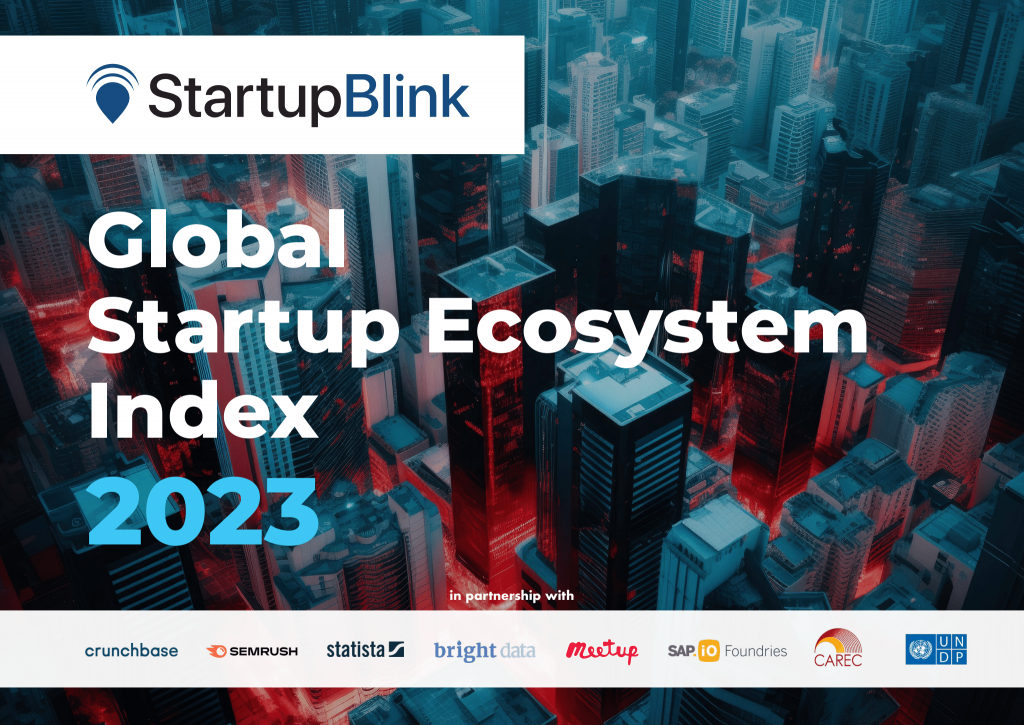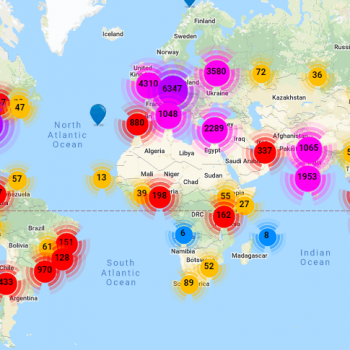In recent years, the vision of a unified global startup scene has grown increasingly distant. The decoupling of main startup ecosystems, initiated by China’s decision to disconnect its internet from the world and focus on local markets, has been further intensified by substantial limitations imposed by the US on China in relation to sensitive technologies. The aftermath of the COVID-19 pandemic has also played a significant role in disrupting global supply chains and highlighting the importance of self-reliance. This blog article expands on the current state of the global startup ecosystem from the Global Startup Ecosystem Index.
and will discuss the geopolitics impact on startup ecosystems and the shifting dynamics in the global innovation landscape.
The Decoupling of Startup Ecosystems

China’s proactive approach to decoupling has set the stage for a worldwide trend. By disconnecting its internet and emphasizing domestic growth, China has aimed to reduce its dependence on foreign technologies and establish itself as a global leader. Simultaneously, tensions between the US and China have led to limitations on the transfer of sensitive technologies, further driving the decoupling process. As a result, startup ecosystems have been affected, with innovation and collaboration facing obstacles due to geopolitical frictions.
The decoupling process has not been limited to China alone. The Russian ecosystem, although smaller, has experienced a similar intensification of decoupling. Under sanctions from the West, Russia has shifted its focus towards building a self-sustaining national ecosystem with reduced connections to the global market. Consequently, we are witnessing a growing trend of innovation targeted at regional markets rather than global expansion, as startups seek to mitigate geopolitical risks and operate within more localized contexts.
The Rise of Regional Innovation
The decoupling of startup ecosystems has given rise to a renewed emphasis on regional innovation. Startups are recognizing the need to adapt to geopolitical risks and are increasingly tailoring their products and services to specific regional markets. For instance, we have witnessed the emergence of startups targeting specific cultural preferences, regulatory environments, and economic conditions in their respective regions. While this regional approach presents challenges, such as navigating diverse market dynamics and localized competition, it also opens up new opportunities for startups to create localized solutions that resonate with regional customers.
Geopolitical Risks and Shifting Mindsets
The heightened geopolitical risks have led to a significant shift in the mindsets of ecosystem stakeholders. Governments, investors, and startups alike are becoming increasingly aware of the potential risks associated with global interdependence. This awareness is influencing investment decisions, strategic partnerships, and startup strategies. Startups are now more cautious about relying heavily on cross-border collaborations and are focusing on building resilient and diverse networks within their regional ecosystems. The understanding of geopolitical risks has become a critical factor in shaping the direction and growth of startups in this decoupled world.
Protectionism and Subsidy Races
Overprotectionism has become a prevalent response to geopolitical uncertainties. Governments around the world have implemented protectionist measures, such as trade barriers, data localization requirements, and stricter regulations, to safeguard their national interests. These measures, while aimed at protecting domestic industries, have unintended consequences for startup ecosystems. Cross-border collaborations are hindered, market access becomes more challenging, and the flow of talent and ideas is impeded.
Moreover, historically open economies like the United States have engaged in subsidy races, particularly in strategic industries such as climate and semiconductors. This unexpected shift towards subsidies and government support reflects the growing recognition of the need to secure vital industries and technologies domestically. While subsidies can stimulate innovation and competitiveness, they also contribute to the fragmentation of the global startup landscape and intensify the trend of deglobalization.
Future Outlook
The deglobalization trend driven by geopolitical factors is likely to intensify in the coming years. As nations prioritize self-reliance and mitigate geopolitical risks, startup ecosystems will face new challenges and opportunities. Startups must navigate these complexities by adapting their strategies to the changing geopolitical landscape. Building diverse networks, focusing on regional markets, and fostering resilience will be key to success in a decoupled world.
Conclusion
The geopolitical landscape is significantly impacting startup ecosystems worldwide. The decoupling of startup ecosystems, driven by China’s initiatives and geopolitical tensions, has set the stage for a fragmented innovation landscape. The rise of regional innovation, coupled with shifting mindsets towards geopolitical risks, highlights the need for startups to adapt their strategies and approaches. Navigating over protectionism and subsidy races poses additional challenges, further reinforcing the trend of deglobalization. By understanding and proactively responding to these geopolitical dynamics, startups can position themselves to thrive in a decoupled world while seizing the opportunities that arise within regional ecosystems.
Would you like to dive deeper into the topic of startup ecosystems and gain more insights?
About Us:
StartupBlink is the world’s most comprehensive startup ecosystem map and research center, working with over 100 government entities worldwide. StartupBlink’s global startup ecosystem map has tens of thousands of registered startups, coworking spaces, and accelerators, creating a robust sample of innovation globally.
Our Partners:











